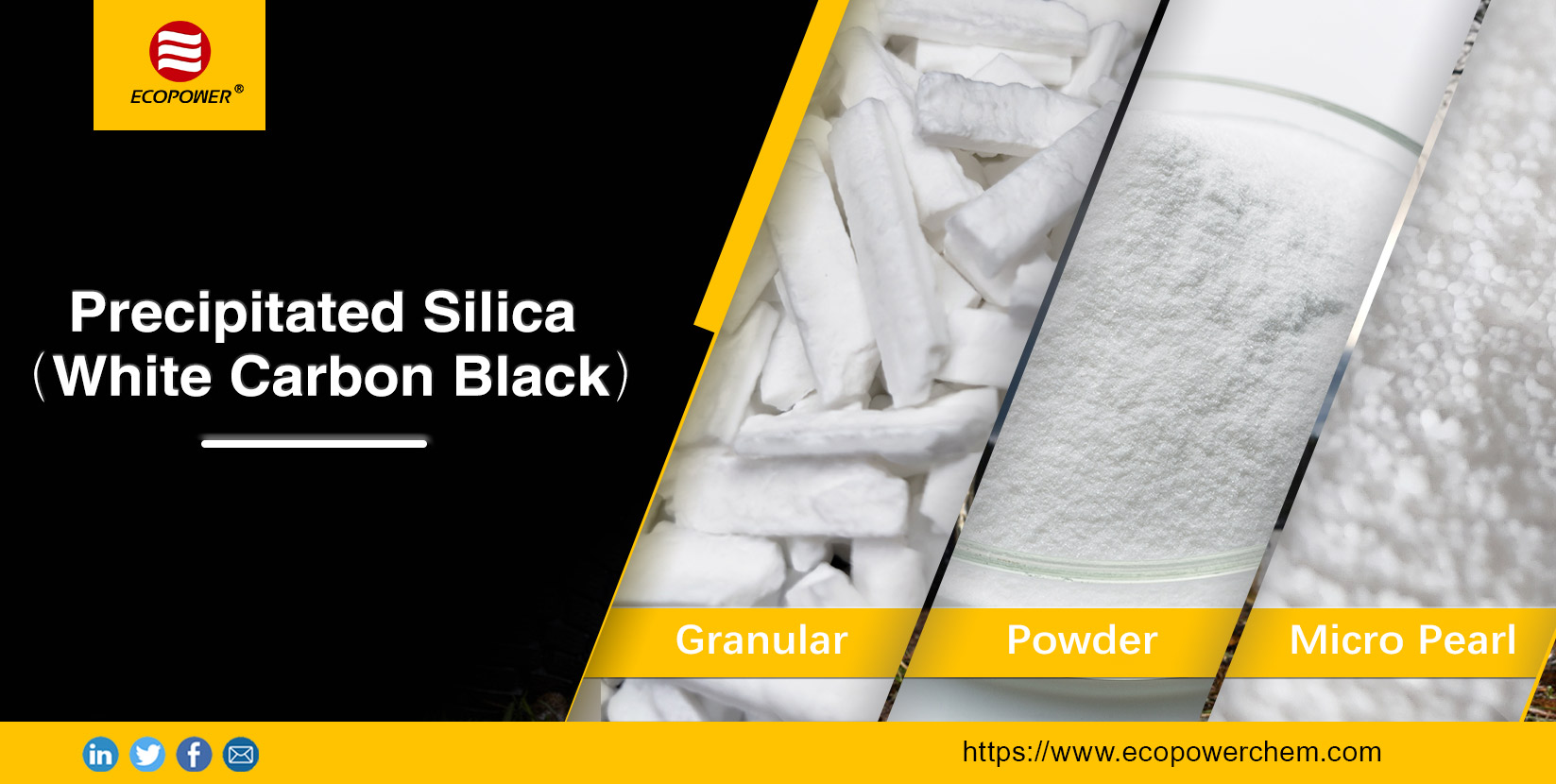 Whatsapp us
Whatsapp us
White carbon black, also known as hydrated silica (SiO2, Precipitated Silica, White Carbon, Silicon Dioxide, Silica Powder, Amorphous Precipitated Silica) with the chemical formula SiO2•nH2O, is an inorganic silicon compound that is white, non-toxic, amorphous, and finely powdered. It possesses excellent properties such as porosity, high dispersibility, lightweight, good chemical stability, high temperature resistance, non-combustibility, and good electrical insulation. It has been widely used in various fields such as plastics, rubber, papermaking, coatings, dyes, and inks.
White carbon black is used as a reinforcing agent, with the largest usage in the rubber industry, accounting for 70% of the total usage. White carbon black significantly improves the physical properties of rubber compounds, reduces hysteresis, reduces rolling resistance of tires, while maintaining its wet skid resistance. In the rubber industry, carbon black is an effective reinforcing filler, but it cannot be used to produce colored products. Ultrafine white carbon black, as a reinforcing filler, can be used in the production of green tires, replacing carbon black in the sidewall. It significantly increases the tear strength and crack growth resistance of the sidewall without affecting the curing time. Ozone resistance depends on the amount of antioxidant and white carbon black used. Adding white carbon black to the tread rubber of tires can improve the cut and tear resistance of the tread, reducing chunking and chipping. Compared to rubber compounds filled with ordinary carbon black, the rolling resistance can be reduced by 30% when white carbon black is used as a filler.
Fumed silica generally comes in two types: hydrophilic and hydrophobic. Hydrophobic fumed silica is produced by chemically modifying the surface of hydrophilic fumed silica. Nowadays, matting agent manufacturers widely use hydrophobic fumed silica. Its working principle is as follows: the micron/nano-sized particles on its surface are uniformly distributed on the coating (such as paint or ink) during the curing process, forming a microscopically rough structure. When light hits the coating surface, these tiny irregularities scatter the light, transforming the original specular reflection into diffuse reflection, thereby effectively reducing the glossiness of the coating surface (i.e., achieving a matting effect). Due to its surface modification, hydrophobic fumed silica disperses more effectively in organic resin systems, preventing agglomeration and ensuring the uniformity and stability of the matting effect.
White carbon black is also commonly used in new types of plastics. Adding a small amount of white carbon black during plastic compounding has a significant reinforcing effect, improving the hardness and mechanical properties of the material, thereby enhancing processing and product performance. Additionally, white carbon black, with its small particle size and high transparency, can make plastics more compact and increase their transparency.
Precipitated white carbon black is currently the main type of abrasive used in toothpaste. Precipitated white carbon black has a larger specific surface area, stronger adsorption capacity, and can adsorb more substances. Its uniform particles contribute to increased transparency. Due to its stable and non-toxic nature, it is a good raw material for toothpaste. The refractive index of white carbon black ranges from 1.45 to 1.50, which is very close to the refractive index of other ingredients in toothpaste. When mixed together, it acts as a clarifying agent. This characteristic is utilized to manufacture transparent toothpaste, which is a unique function not present in other abrasives.
Application in Rubber Footwear
White carbon black, with its high whiteness and fine particles, can be used to produce transparent vulcanized rubber with high transparency. It can also improve the comprehensive physical properties of rubber materials. Therefore, white carbon black is widely used as the main reinforcing filler in the production of high-end leather shoes and sports shoe soles, especially in transparent and semi-transparent sole compounds. It can improve the wear resistance, hardness, tensile strength, and tear strength of the soles.

hydrated silica SiO2, Precipitated Silica, White Carbon, Silicon Dioxide, Silica Powder, Amorphous Precipitated Silica